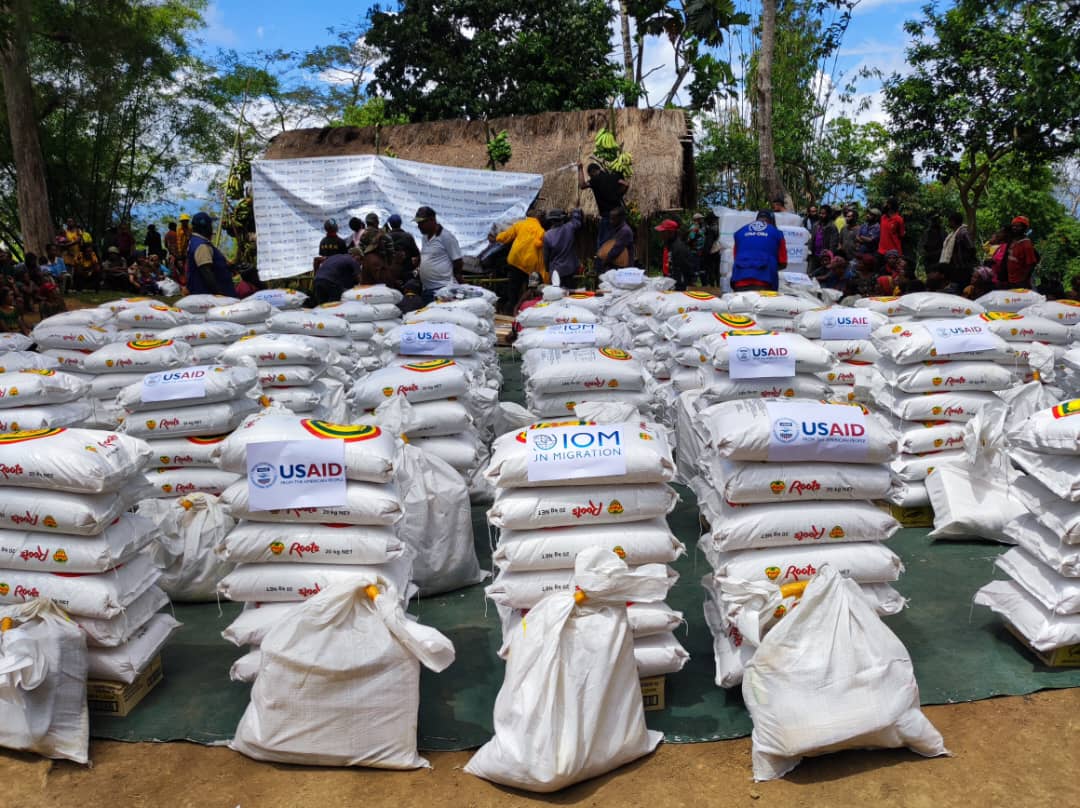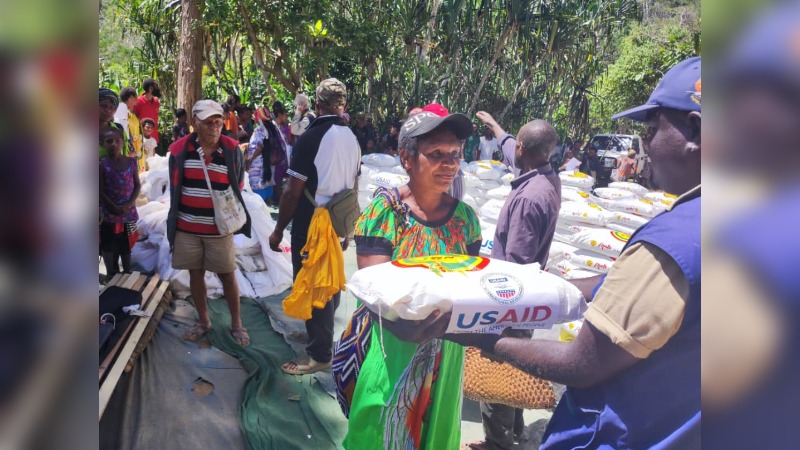People in the Highlands Region of Papua New Guinea (PNG) displaced from the election violence from last year’s National General Election, are now fortunate to be getting much needed support from one of the world’s biggest organizations.
The International Organization for Migration (IOM) through the financial assistance of USAID Bureau for Humanitarian Assistance (BHA), is working in partnership with the national and provincial disaster centres in the Highlands provinces to distribute food rations to vulnerable households who have been affected by election related violence in Enga, Southern Highlands, Hela and Jiwaka provinces from over a year ago – an incident which displaced several local communities.
In the wake of the violence, food crop gardens and shelters were destroyed affecting the lives of many people including women, children, people with disabilities and the elderly.
Mambu Gene, a women’s representative, shed tears as she recalled the hardships they dealt with.

“We faced several difficulties and families had to forgo meals. We did not have enough money to buy food. It will take months to replant and harvest our crop fields that were destroyed during the fighting. Providing enough food to our families has been difficult. We are thankful for USAID and IOM for this assistance.”
Another community member, Michael Kuman stated that this is the first time such assistance has been given to displaced persons. He also noted that the food rations would sustain the community until the upcoming harvest time.
John Kupul, the Disaster Coordinator for Jiwaka Province, expressed gratitude to the US Government and the people for their support of the affected communities. He was grateful for the cooperation between IOM and the Jiwaka Provincial Disaster Center, which was made possible by USAID/BHA funding.
Kupul stated that the lives of the most vulnerable groups will be significantly improved by this collaboration.
By distributing two months’ worth of food rations, IOM, working with USAID/BHA, has increased the food security of 5, 300 individuals from 1, 000 households in the provinces of Jiwaka, Enga, Hela, and the Southern Highlands.

